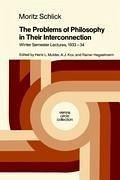
(Over)Interpreting Wittgenstein
Versandkostenfrei!
Versandfertig in 1-2 Wochen
77,99 €
inkl. MwSt.
Weitere Ausgaben:

PAYBACK Punkte
39 °P sammeln!
(Over)Interpreting Wittgenstein will be read by philosophers investigating Wittgenstein and by scholars, interpreters, students, and specialists, in both analytic and continental philosophy. It will intrigue readers interested in issues of interpretation and cultural studies. This book tells the story - as yet untold - of Wittgenstein interpretation during the past eighty years. It provides different interpretations, chronologies, developments, and controversies. It aims to discover the (socio-cultural rather than psychological) motives and motivations behind the philosophical community's proj...
(Over)Interpreting Wittgenstein will be read by philosophers investigating Wittgenstein and by scholars, interpreters, students, and specialists, in both analytic and continental philosophy. It will intrigue readers interested in issues of interpretation and cultural studies.
This book tells the story - as yet untold - of Wittgenstein interpretation during the past eighty years. It provides different interpretations, chronologies, developments, and controversies. It aims to discover the (socio-cultural rather than psychological) motives and motivations behind the philosophical community's project of interpreting Wittgenstein. As a cultural history of ideas, it traces the parallelism between Wittgenstein interpretation and the move from metaphysics, to language, to postmodernism effected in the twentieth century.
This book tells the story - as yet untold - of Wittgenstein interpretation during the past eighty years. It provides different interpretations, chronologies, developments, and controversies. It aims to discover the (socio-cultural rather than psychological) motives and motivations behind the philosophical community's project of interpreting Wittgenstein. As a cultural history of ideas, it traces the parallelism between Wittgenstein interpretation and the move from metaphysics, to language, to postmodernism effected in the twentieth century.














